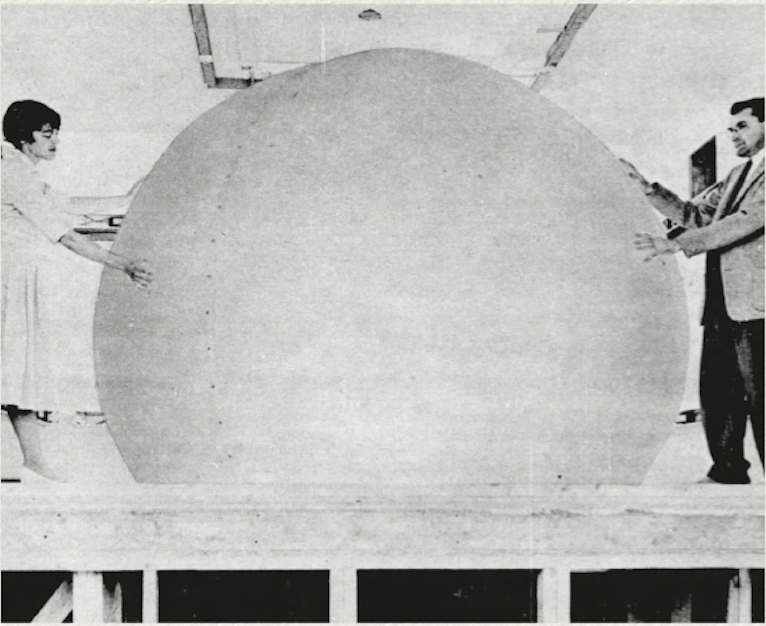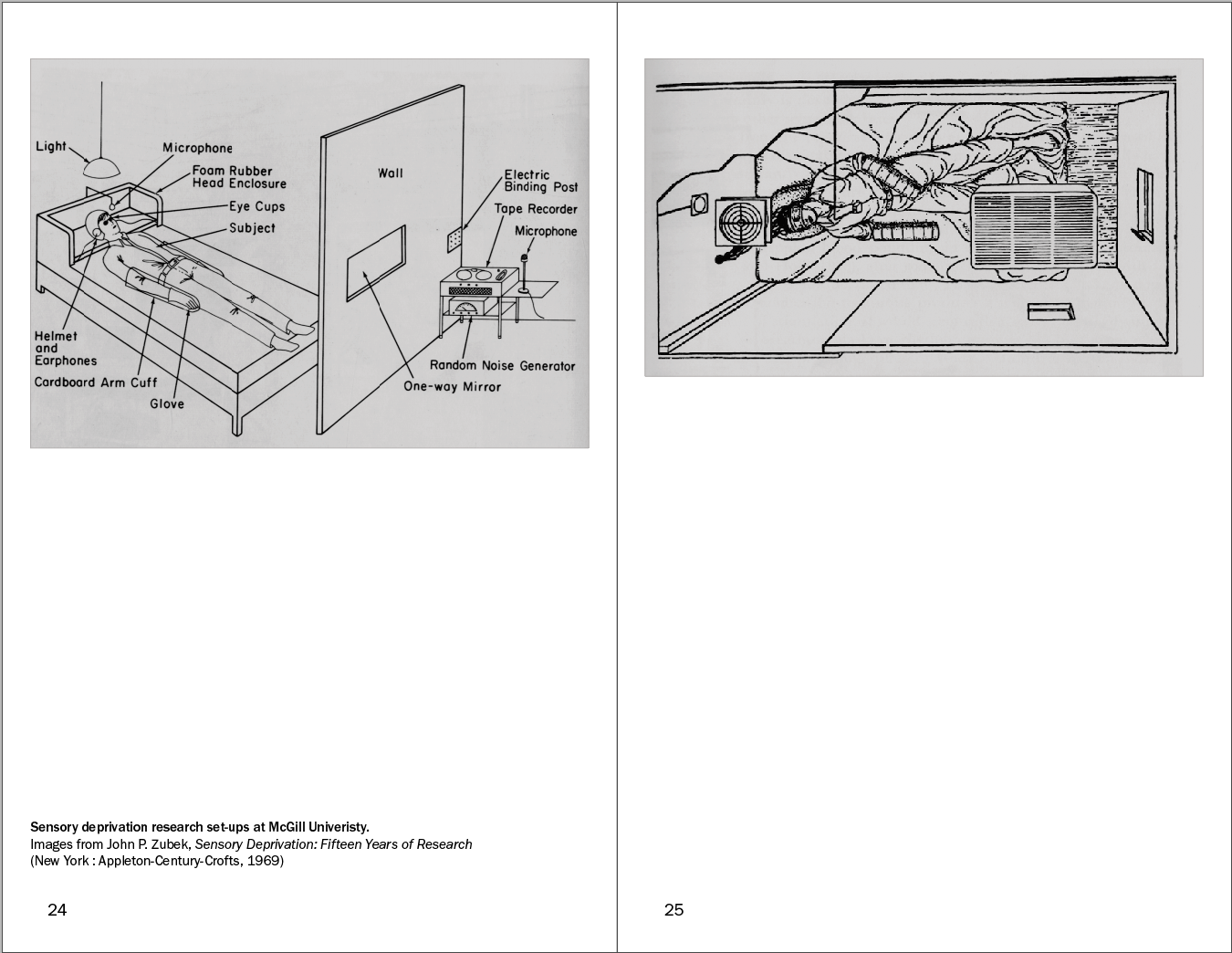Environments of the Self
Thesis
MS Critical, Curatorial & Conceptual Practices in Architecture
Columbia GSAPP
Thesis
MS Critical, Curatorial & Conceptual Practices in Architecture
Columbia GSAPP
This thesis investigates spatial concepts of the self in the realm of popular psychology in the 1970s. As ecological, financial, and political insecurities prompted a retreat inward, a culture of seeking cures for societal ills in the self emerged. The spaces collected in this thesis are once physical and psychic, contained by architectural boundaries of walls and ceilings, but reliant on the sensory as a form of ambient spatial control. Beyond the forms of atmospheric climate-control of the well-tempered environment, in these environments of temperament, affect and behavior become the primary spatial concerns.
Environments of the Self is formed around three main case studies across disciplines and media: a body of psychology experiments, a series of ambient sound recordings, and an architectural exhibition. Each case study foregrounds a particular setting (the laboratory, the home, the museum, the city), a perceived subject (the test subject, the consumer, the urban public), tracing practices where the mind becomes a space of negotiation between individual and environment, from scientific studies in environmental psychology, through popular psychology, into forms of entertainment. These episodes of environmental mood alteration and behavior modification are test cases for thinking about the thresholds between body and environment, interior and exterior. Through the figure of the self, I endeavor to ask where apparatuses of power emerge in a complex of bodies, spaces, sensory engagements, and architectures of mood.
![]()
![]()
![]()
Environments of the Self is formed around three main case studies across disciplines and media: a body of psychology experiments, a series of ambient sound recordings, and an architectural exhibition. Each case study foregrounds a particular setting (the laboratory, the home, the museum, the city), a perceived subject (the test subject, the consumer, the urban public), tracing practices where the mind becomes a space of negotiation between individual and environment, from scientific studies in environmental psychology, through popular psychology, into forms of entertainment. These episodes of environmental mood alteration and behavior modification are test cases for thinking about the thresholds between body and environment, interior and exterior. Through the figure of the self, I endeavor to ask where apparatuses of power emerge in a complex of bodies, spaces, sensory engagements, and architectures of mood.


